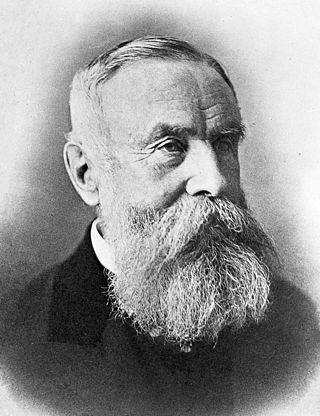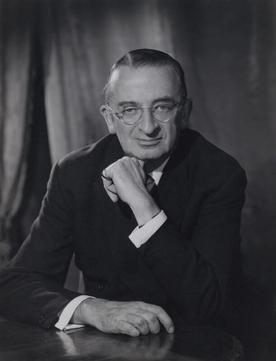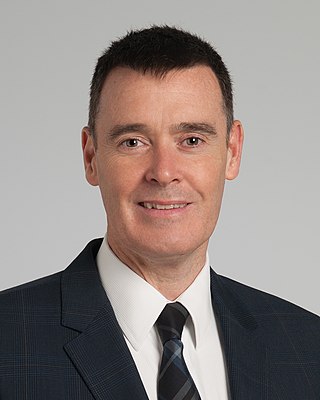
Plastic surgery is a surgical specialty involving the restoration, reconstruction, or alteration of the human body. It can be divided into two main categories: reconstructive surgery and cosmetic surgery. Reconstructive surgery covers a wide range of specialties, including craniofacial surgery, hand surgery, microsurgery, and the treatment of burns. This category of surgery focuses on restoring a body part or improving its function. In contrast, cosmetic surgery focuses solely on improving the physical appearance of the body. A comprehensive definition of plastic surgery has never been established, because it has no distinct anatomical object and thus overlaps with practically all other surgical specialties. An essential feature of plastic surgery is that it involves the treatment of conditions that require or may require tissue relocation skills.

Joseph Edward Murray was an American plastic surgeon who is known as the "father of transplantation" for major milestones in the field of transplantation, including performing the first successful human kidney transplant, defining brain death, the organization of the first international conference on human kidney transplants and founding of the National Kidney Registry, the forerunner of the current United Network Of Organ Sharing (UNOS). By 2013, more than one million patients are estimated to have benefitted from organ transplantation around the world.
Oral and maxillofacial surgery is a surgical specialty focusing on reconstructive surgery of the face, facial trauma surgery, the mouth, head and neck, and jaws, as well as facial plastic surgery including cleft lip and cleft palate surgery.
Barry O'Donnell was an Irish pediatric surgeon who worked at Our Lady's Hospital for Sick Children, Crumlin in Dublin, who along with Prem Puri pioneered the sub-ureteric Teflon injection (STING) procedure for vesico-ureteric reflux. He was awarded the Urology Medal by the American Academy of Pediatrics, the first pediatric surgeon working outside the US to be so honored.
Anthony A. Goodman is an American breast cancer surgeon and author. He is Adjunct Professor of Medicine at Montana State University WWAMI Medical Sciences Program and is Affiliate Professor in the Department of Biological Structure at the University of Washington School of Medicine.

The Lahey Hospital & Medical Center, formerly known as the Lahey Clinic, is a physician-led nonprofit teaching hospital of Tufts University School of Medicine based in Burlington, Massachusetts. The hospital was founded in Boston in 1923 by surgeon Frank H. Lahey, M.D., and is managed by Beth Israel Lahey Health. U.S. News & World Report has cited it several times on its list of "America's Best Hospitals" in the category of urology.

John Webster Kirklin was an American cardiothoracic surgeon, general surgeon, prolific author and medical educator who is best remembered for refining John Gibbon's heart–lung bypass machine via a pump-oxygenator to make feasible under direct vision, routine open-heart surgery and repairs of some congenital heart defects. The success of these operations was combined with his other advances, including teamwork and developments in establishing the correct diagnosis before surgery and progress in computerized intensive care unit monitoring after open heart surgery.
Markus Wolfgang Büchler is a German surgeon and university full professor. He specialises in gastrointestinal, hepatobiliary and transplant surgery, and is especially known for pioneering operations on the pancreas.

Henry Jacob Bigelow was an American surgeon and Professor of Surgery at Harvard University. A dominating figure in Boston medicine for many decades, he is remembered for the Bigelow maneuver for hip dislocation, a technique for treatment of kidney stones, and other innovations. He was instrumental in bringing the anesthetic possibilities of ether to the attention of medical men, and rescuing the case of Phineas Gage from relative obscurity. He was a vocal opponent of vivisection, and played a minor role in the apprehension of the culprit in the Parkman–Webster murder case.

Horace Evans, 1st Baron Evans GCVO was a Welsh general physician known for serving the British royal family.
Aesthetic medicine is a branch of modern medicine that focuses on altering natural or acquired unwanted appearance through the treatment of conditions including scars, skin laxity, wrinkles, moles, liver spots, excess fat, cellulite, unwanted hair, skin discoloration, spider veins and or any unwanted externally visible appearance. Traditionally, it includes dermatology, oral and maxillofacial surgery, reconstructive surgery and plastic surgery, surgical procedures, non-surgical procedures, and a combination of both. Aesthetic medicine procedures are usually elective. There is a long history of aesthetic medicine procedures, dating back to many notable cases in the 19th century, though techniques have developed much since then.
Robert Malcolm Goldwyn was an American surgeon; an author, activist, Professor of Surgery at Harvard Medical School, and Chief of Plastic Surgery at the Beth Israel Hospital from 1972 to 1996. He was the editor-in-chief of Plastic and Reconstructive Surgery for 25 years.
Gerald Westbury OBE FRCS, usually known as Charley Westbury, was an English surgeon who pioneered treatments for cancer, particularly sarcoma, developing techniques for preserving muscle function after surgery. He also developed new techniques of reconstructive surgery for cancers of the head and neck, and championed a multidisciplinary approach to cancer treatment.
Frank Howard Lahey MD, was a physician who founded the Lahey Clinic in Boston in 1923. Lahey was nationally known in the U.S. medical profession, not only as a world-renowned surgeon, but also as a teacher of medicine, and a medical administrator.

Owen Harding Wangensteen was an American surgeon who developed the Wangensteen tube, which used suction to treat small bowel obstruction, an innovation estimated to have saved a million lives by the time of his death. He founded the Surgical Forum at the American College of Surgeons (ACS) and was renowned for his surgical teaching. Amongst his most notable students were Walton Lillehei, Christiaan Barnard, K. Alvin Merendino, Norman Shumway and Edward Eaton Mason. He made contributions to surgical practices in other areas, including appendicitis, peptic ulcers and particularly gastric cancer. In his later life, he showed a keen interest in the history of medicine and co-wrote a number of books on the subject with his wife.

Ian Aird was a Scottish surgeon who became Professor of Surgery at the Royal Postgraduate Medical School in London. There he built up a large and productive research department which made particular contributions in cardiac surgery, renal transplantation and the association of blood groups with stomach cancer. He came to national and international prominence in 1953 when he led the teams which performed an operation to separate conjoined twins. His book A Companion in Surgical Studies was among the best selling surgical textbooks of its day. He died suddenly in 1962 at the age of 57.
John Basil Hume (1893-1974) was a British surgeon and lecturer in anatomy, who trained and mainly worked at St Bartholomew's Hospital, London. As well being an examiner in anatomy for the Royal College of Surgeons and a Hunterian Professor, lecturing in particularly diaphragmatic hernia, he is most commonly remembered for performing Anthony Eden's bile duct operation in 1953.
Charles Anthony Fager was an American neurosurgeon, medical academic, and leader at the Lahey Hospital & Medical Center.

Conor P. Delaney MD, MCh, PhD, FRCSI, FACS, FASCRS, FRCSI (Hon.) is an Irish-American colorectal surgeon, CEO and President of the Cleveland Clinic Florida, the Robert and Suzanne Tomsich Distinguished Chair in Healthcare Innovation, and Professor of Surgery at the Cleveland Clinic Lerner College of Medicine. He is also the current President of the American Society of Colon and Rectal Surgeons (ASCRS). He was previously Chairman of the Digestive Disease & Surgery Institute at the Cleveland Clinic. He is both a Fellow and Honorary Fellow of the Royal College of Surgeons in Ireland and a Fellow of both the American College of Surgeons and American Society of Colon and Rectal Surgeons.

John Percy Lockhart-Mummery FRCS, was a British surgeon at St Mark's Hospital, London, who devised a classification of rectal cancer and described familial polyposis which led to the formation of the polyposis registry. He was the author of several books, including Diseases of the Rectum and Colon and their Surgical Treatment (1923) and The Origin of Cancer (1934). His work on colorectal surgery earned him the nickname "King Rectum".











